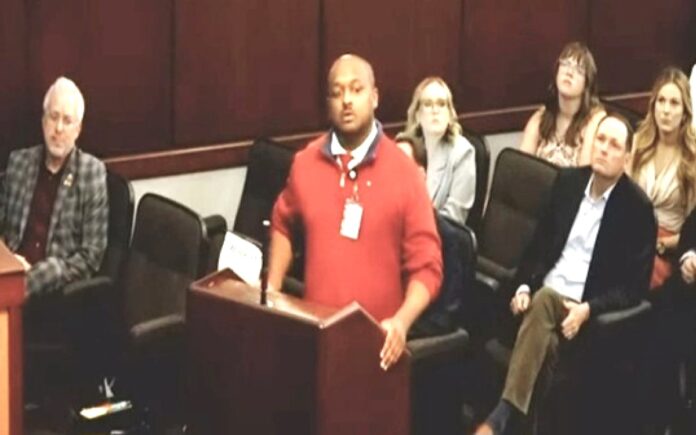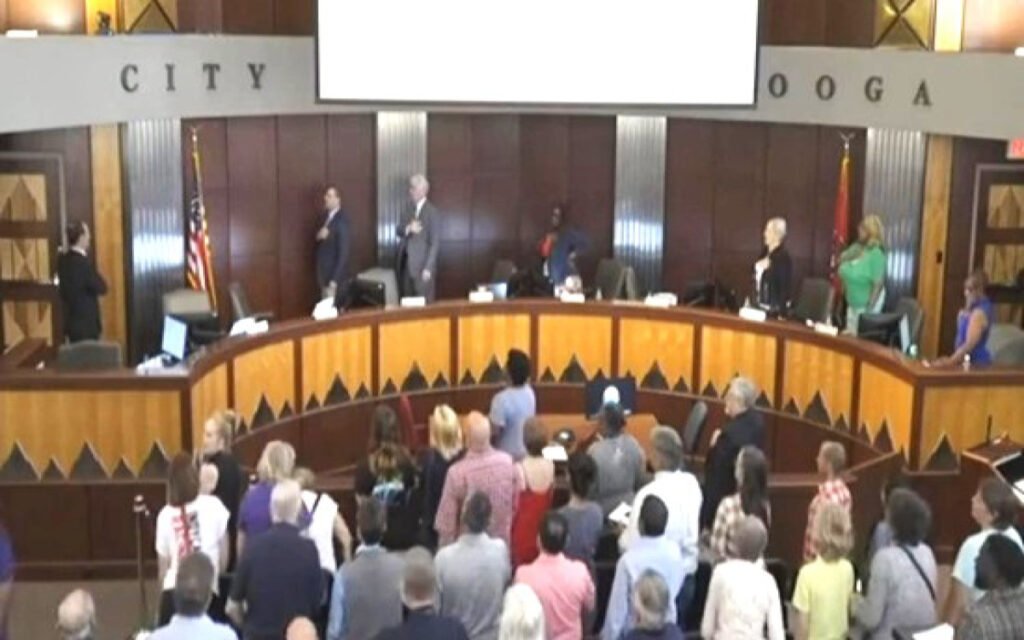

Several members of Chattanooga’s City Council on Tuesday raised concerns over the proposed riverfront project, known as the “One Westside Plan,” expressing reservations about its potential impact on community equity.
The project aims to revitalize approximately 300 acres in Chattanooga’s Westside, with an estimated cost ranging from $800 million to $2.3 billion. However, some council members fear that the plan could inadvertently create an exclusive neighborhood for a privileged few, reminiscent of past eras of segregation.
During Tuesday’s council meeting, Vice Chairwoman Jenny Hill, representing North Chattanooga, voiced her concerns about the project’s potential consequences. When the Westside public housing complex was built “it was intentionally a segregated neighborhood. We created apartheid with that,” she said.
Vice Chairwoman Hill emphasized her unwillingness to support a development that caters exclusively to higher-income individuals while neglecting the working-class community.
While Hill acknowledged the positive aspects of the plan, she stressed the importance of ensuring affordability for working-class residents.
She emphasized that the resulting community “should not be for the corporate conglomerate that we are going to bring here,” but for those “who pour your beer and check out your groceries.”
District 9 Councilwoman Demetrus Coonrod, who grew up on the Westside, raised concerns about the fate of long-standing community members and their ability to find affordable housing elsewhere. She noted that some residents currently pay as little as $25 or $50 in rent and would struggle to secure affordable alternatives.
“When we think about the people that’s impacted, it’s majority black people,” she said. “Chattanooga was part of the transporting of slaves. It was also a station point to where we were sold on where we call it Riverfront Parkway, along that river. I would like for you all to include that history somewhere on that site, so people can know what happened to the people who were brought here as slaves. We were black people that were here in this whole community that’s fixing to be something different. And a lot of them that were part of the conversation are going to be displaced.”
Other council members also highlighted the potential displacement of current Westside residents. District 8 Councilwoman Marvene Noel expressed doubts about the surveys conducted by the Chattanooga Housing Authority (CHA) to determine residents’ preferences. She voiced concerns that the project could inadvertently contribute to population movements rather than providing better housing options for existing residents.
“It was going to be 1 for 1,” Councilwoman Noel said. “I’m not hearing that now. This just has Jim Crow sprinkled all over it. It seems to have everyone moving out instead of staying and finding a better place to live.”
The city of Chattanooga has proposed a 20-year tax increment financing agreement (TIF) as a means to fund the project. However, some council members questioned whether the TIF would truly benefit those from lower socioeconomic backgrounds.
Vice Chairwoman Hill expressed her reservations about building an exclusive community using TIF funds and insisted that affordable housing options be prioritized for the project.
During the meeting, other members echoed Councilwoman Hill’s concerns. Councilman Chip Henderson questioned the necessity of the TIF incentive, particularly given the prime location of the riverfront property. However, Jermaine Freeman, Mayor Tim Kelly’s chief of staff, argued that the TIF was crucial for funding such a large-scale project and that other developers had not offered to undertake a development of this magnitude. “The project we are bringing to you today has the potential to be one of the biggest projects in Chattanooga’s history in terms of redevelopment on our Riverfront,” he said.
